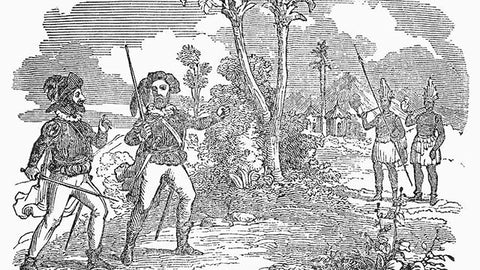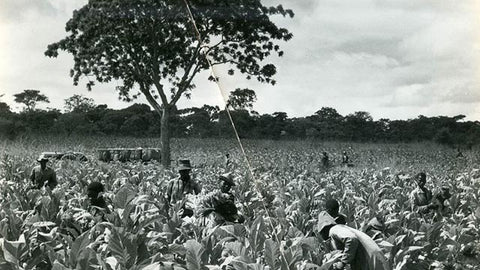
Tobacco Growing in Portugal
Share
Tobacco was first introduced to Portugal in the early 16th century, shortly after it was brought to Europe from the New World. The Portuguese were among the first European powers to establish trading relations with the native peoples of the Americas, and they quickly became aware of the economic potential of tobacco.
The Portuguese began cultivating tobacco in their colonies in Brazil and Africa, and they soon began importing tobacco to Portugal itself. Tobacco quickly became popular among the Portuguese, and it was used for both smoking, chewing and snuffing.

Portugal began cultivating tobacco in Brazil in the early 16th century, shortly after the Portuguese established their colony there. Tobacco quickly became an important crop for the Portuguese in Brazil, and it was grown extensively throughout the colony.
Initially, tobacco cultivation in Brazil was relatively small-scale and focused on meeting the local demand for tobacco. However, as demand for tobacco grew both in Portugal and in other European countries, the Portuguese government began to promote and expand tobacco production in Brazil.
The Portuguese established large tobacco plantations in Brazil, which were often worked by enslaved Africans brought over from Africa. These plantations were highly profitable for the Portuguese, and they helped to make Brazil one of the world's leading tobacco producers.

The Portuguese government tightly regulated tobacco production in Brazil, and only licensed growers were allowed to cultivate tobacco. The government also established a state monopoly on tobacco production and sale, which ensured that the Portuguese state benefited financially from tobacco production.
Despite the strict regulations and heavy taxes imposed by the Portuguese government, tobacco cultivation in Brazil continued to expand throughout the 17th and 18th centuries. Today, Brazil remains one of the world's largest tobacco producers, and tobacco cultivation remains an important part of the country's economy.
Like in other European countries, tobacco was initially viewed with suspicion and disapproval by some members of the Portuguese clergy. However, the Portuguese government recognized the economic potential of tobacco, and they established a state monopoly on tobacco production and sale, which lasted until the mid-19th century.

Under the state monopoly, tobacco production in Portugal was tightly regulated, and only licensed growers were allowed to cultivate tobacco. The government also imposed heavy taxes on tobacco, which helped to generate significant revenue for the state.
Today, tobacco remains an important part of Portuguese culture, particularly in the form of hand-rolled cigarettes known as "cachimbos." Portugal is still a significant producer of tobacco, particularly in the Azores islands, and Portuguese tobacco is prized for its high quality and unique flavor.
